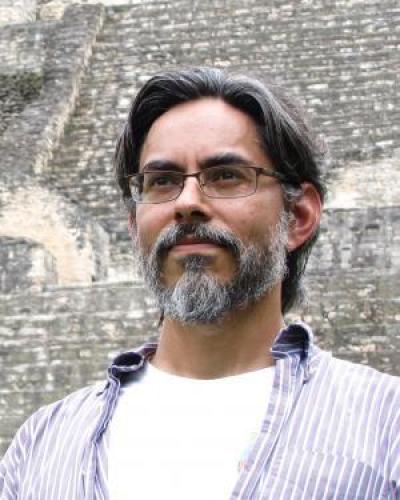Gerardo Aldana

What advice would you give first-generation college students?
“Get back on your horse.” That’s what my uncle told me once when I was explaining that I was confused and didn’t know what I wanted to do with my life. I don’t remember if I called him because of a poor grade on an exam or from frustration with a problem set. I don’t remember what triggered my despondency, but his calm reassurance to ‘get back on my horse’ stuck with me.
He, my uncle, never went to college. He grew up like my father between Jalisco and Southern California, but was drafted into the army during the Korean War. When he came back to the States, he took a job in an assembly line at a leather factory in Milwaukee—a long way from the agricultural fields in California or the ranch where he rode actual horses in Mexico. Over the years, he worked his way up into an administrative position in the company. We never talked about it directly, but I’m sure his “career trajectory” was not easy. It was absolutely clear to me in our conversation that that when he told me to get back on my horse, it was because that was exactly what he had done countless times in his own life. You get knocked off; you get back on. You may not know exactly where you’ll end up, but you have to get back on to find out.
What specific challenges do you think first-generation college students face?
I knew there were a lot of things that I wanted to leave behind by going away to college. At the same time, there was a lot about home that I missed as soon as I left. It took me a while to find a balance between spaces on campus and in the Berkeley community that let me feel “at home” and spaces that encouraged me to explore differences. But just the process of actively looking for a balance (rather than sticking with just one or the other) I found to be very much worth the effort.
Where did you go to high school and how did you come to go to college?
I went Orange Glen High School in Escondido, California. My parents always pushed us to work hard academically and public school was well funded at the time, so I found myself entering my senior year at the top of my class. I had a friend who researched everything before he did anything… he always knew what the best car stereo was, what tires he wanted for his car, etc. even if we couldn’t afford them. I was convincing myself at the time that I wanted to be a mechanical engineer so I asked him what he thought and he said that Berkeley was the best engineering school in the country. I looked for it on a map and saw that it was pretty far away (anything north of L.A. was northern California to me then), so I took his word for it and applied. Looking back on it now I don’t think any process of selection would have ended up providing me with a better experience—not that it was perfect, but it was definitely right for me.
What didn't you know when you went to college?
My worst mistake was with housing. I didn’t know anything about how it worked and didn’t know that there was a separate process from admissions for getting a spot in the dorms. When I then received information about registration late in the summer, I realized that I had no idea where I would be living. We scrambled and found out that one of my mom’s friends had a sister who lived about 10 miles from campus. They let me “crash” at their house so that I could ride my bike every day to stand in lines and hope that my spot on the waitlist for a dorm room would finally come up. That whole process left me feeling very disconnected from any kind of college community and made the first few weeks of the semester far more stressful than I expected. I laugh about the whole thing now, and electronic communication (and reminders instead of postal mail) probably have removed the possibility of this mistake for students today, but the point is that when your parents haven’t gone to college themselves, you don’t really know what you don’t know, and that alone can cause its own problems.
Gerardo Aldana
Professor & Chair, Department of Chicana/o Studies
UC Santa Barbara